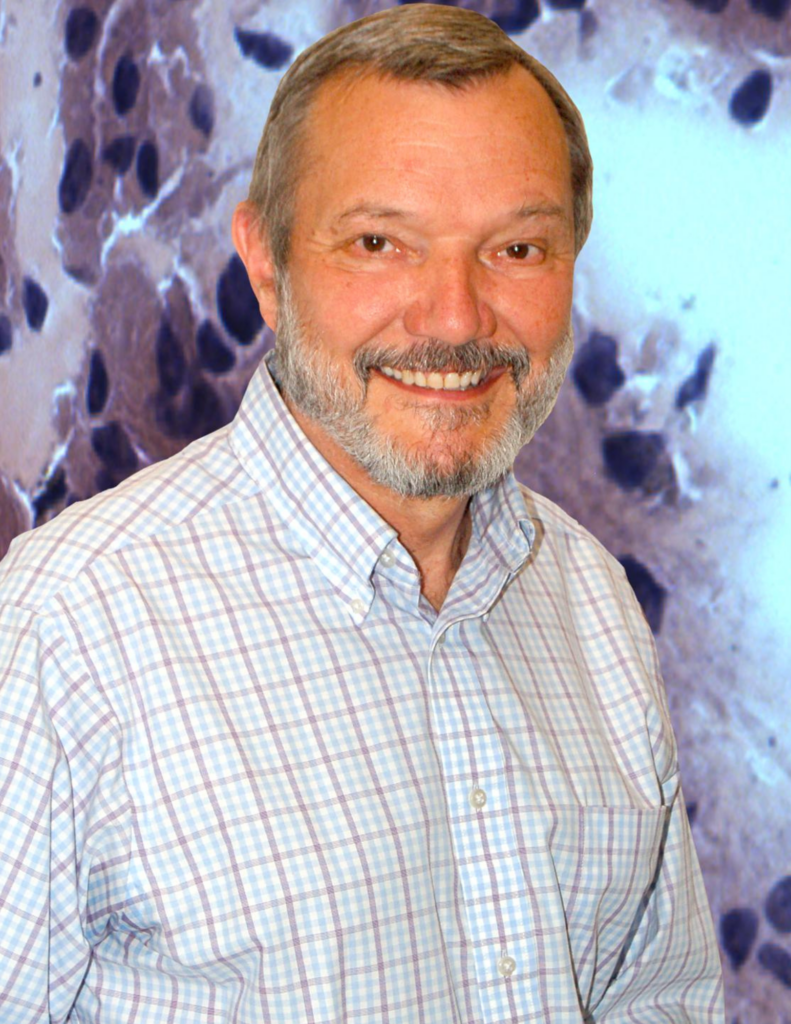
The University of Tennessee Research Foundation regularly meets with researchers to promote a culture of commercialization and explore the practical applications of UT intellectual property.
UTRF is in the business of science. Our mandate is to take complex tech from inventors and translate it into products. Sometimes, patents are the best pathway and other times, licensing know-how is the best. We help researchers determine their path forward,” said Tulika Rastogi, Assistant Technology Manager.

Photo: Mr. Tim Higgins
One researcher UTRF regularly meets with is Marko Radic, an Associate Professor in the Department of Microbiology, Immunology and Biochemistry at the UT Health Science Center. Radic is a seasoned researcher and inventor focused on the molecular mechanisms of autoimmune diseases and the discovery of cures for lupus.
Radic is a very talented researcher,” continued Rastogi. “He always has funding, underscoring the important nature of his work. If major companies fund something, his technology is promising.”
In the past 20 years, Radic has licensed technologies and entered numerous sponsored research agreements with organizations, including some Fortune 500 pharmaceutical companies. He also serves on the Scientific Advisory Board of several companies, including Nexcella, a clinical-stage biopharmaceutical company.
As scientists, we live and die by securing funding,” said Radic. “We have to think about how to keep our labs working, functioning, and moving forward. We need to secure full funding and financial support.”
In 2019, Radic and his team published a study in the Science Translational Medicine journal that found that sustained B cell depletion with CD19-targeted chimeric antigen receptor (CAR) T-cell immunotherapy is a stable and effective strategy for treating systemic lupus erythematosus.
What we found worked very effectively in autoimmune mice and others then demonstrated our approach to be equally effective in humans with lupus,” said Radic. “We have seen an amazing explosion of interest and activity in applying this to lupus and other autoimmune diseases.”
UTRF is working with Radic to discuss the potential commercial implications of his research. As a researcher, Radic acknowledges he needs to learn more about turning his work into a profitable, viable product or business. He is grateful for his meetings with UTRF to brainstorm his work’s applicability.

UTRF is gently trying to help me understand what is involved in this process—I appreciate that,” said Radic. “We’re discussing the best way to make a viable company, product, or idea based on our laboratory research. It’s an ongoing process that requires savvy advice and input.”
Radic underwent a significant shift in his research approach a few years ago. He had previously been studying the mechanisms that lead to autoimmune diseases. After speaking with patients with lupus and other conditions, Radic felt compelled to improve their situation. Rather than studying why patients develop the disease, he wanted his work to impact patient health and well-being directly.
Those conversations caused us to focus on CAR T-cells as a potential therapy for autoimmune diseases. I think patients’ perspectives, involvement, and questions shape many research efforts in the field,” he said. “I feel a very strong ethical commitment to do something worthwhile with my work.”